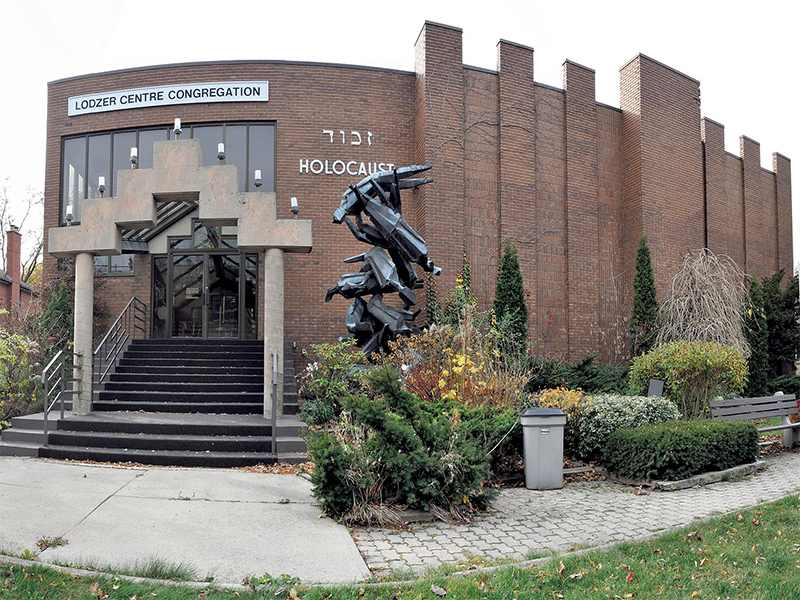A 10-part series presented by Toronto’s Lodzer Centre Congregation will explore the diversity of Jewish music, from cantorial, klezmer and popular Israeli songs to the Jewish music of the Middle East and North Africa.
The series is a tribute to the synagogue’s founders, Holocaust survivors from Lodz, Poland, who created the Lodzer Mutual Benefit Society in 1953. The centre on Heaton Street, near Bathurst Street and Sheppard Avenue, was built in 1981 in memory of the victims of the Holocaust.
Running from Aug. 21 to Dec. 18, the series, called Sundays at 7, features a mix of performances and lectures. The Lodzer’s cantor, Marcel Cohen, said he organized Sundays at 7 to enhance the cultural life of the synagogue and to bring people to the centre.
“A lot of people would enjoy this beautiful facility in the middle of Downsview, which is the Lodzer,” he said. “Some people have been to it, but I don’t think enough people in the city have come to see what survivors from Lodz did when they came to Toronto. It’s going to be a very rich cultural experience for everyone,” he said.
Cohen said music can aid in bridging the generational gaps between Holocaust survivors, their children and their grandchildren.
“Music has a powerful effect on people, and it’s been 70-plus years since the Second World War, so it’s not fresh in anyone’s mind,” Cohen said. “As they get older and see their children and grandchildren, they would like to see that the Jewish community is vibrant. Music has a powerful influence on bridging the cultural gap, the generational gap, and I think that if they can sing and clap and dance to the same music, then that brings a certain amount of comfort and joy to the survivors.”
The series opens on Aug. 21 with Raisa and Viktor Orshansky’s presentation on the history of klezmer. Raisa is a riveting player of the cimbalon, a type of dulcimer played in eastern Europe and Hungary, and she also plays the duduk, an ancient Armenian flute. Her husband, Viktor, is an accomplished pianist. The couple returns to the Lodzer on Nov. 27 to lead a program on the Jewish music of eastern Europe.
Charles Heller, a music educator, a singer, a composer and a former choir conductor at Beth Emeth Bais Yehuda Synagogue, shares his knowledge of the musical origin of popular Jewish melodies, on Aug. 28. Lodzer choir member Faye Kellerstein brings her presentation on Yiddish theatre on Sept. 11. Kellerstein, whose first language is Yiddish, has performed at a variety of venues inside and outside the city.
Cantor Aaron Bensoussan leads three presentations – on the Jewish music of North Africa, on Sept. 18, and the Jewish music of the Middle East, part 1, on Nov. 20, and part 2 on Dec. 4. Bensoussan, whose paternal grandfather was the chief rabbi of Morocco, plays several instruments, including the Middle Eastern oud.
Up-and-coming singer and pianist Reuven Grajner, 21, turns the spotlight on the Jewish role in jazz and the Israeli jazz scene on Oct. 30. Grajner, who studied jazz piano at the University of Toronto, is “very accomplished vocally,” Cohen said. “He’s a prodigy, and it’s incredible to watch him perform.”
Cantor David Nemtzov focuses on the golden age of cantorial music on Nov. 6. “He’s a master cantor, a teacher of many of the local cantors and others internationally,” Cohen said.
David Edwards, who served as cantor at the Lodzer for nine years, rounds out the series on Dec. 18 with a presentation on popular Israeli songs. Each of the presentations, which are free to the general community, is an hour long, followed by questions and a dessert reception.
